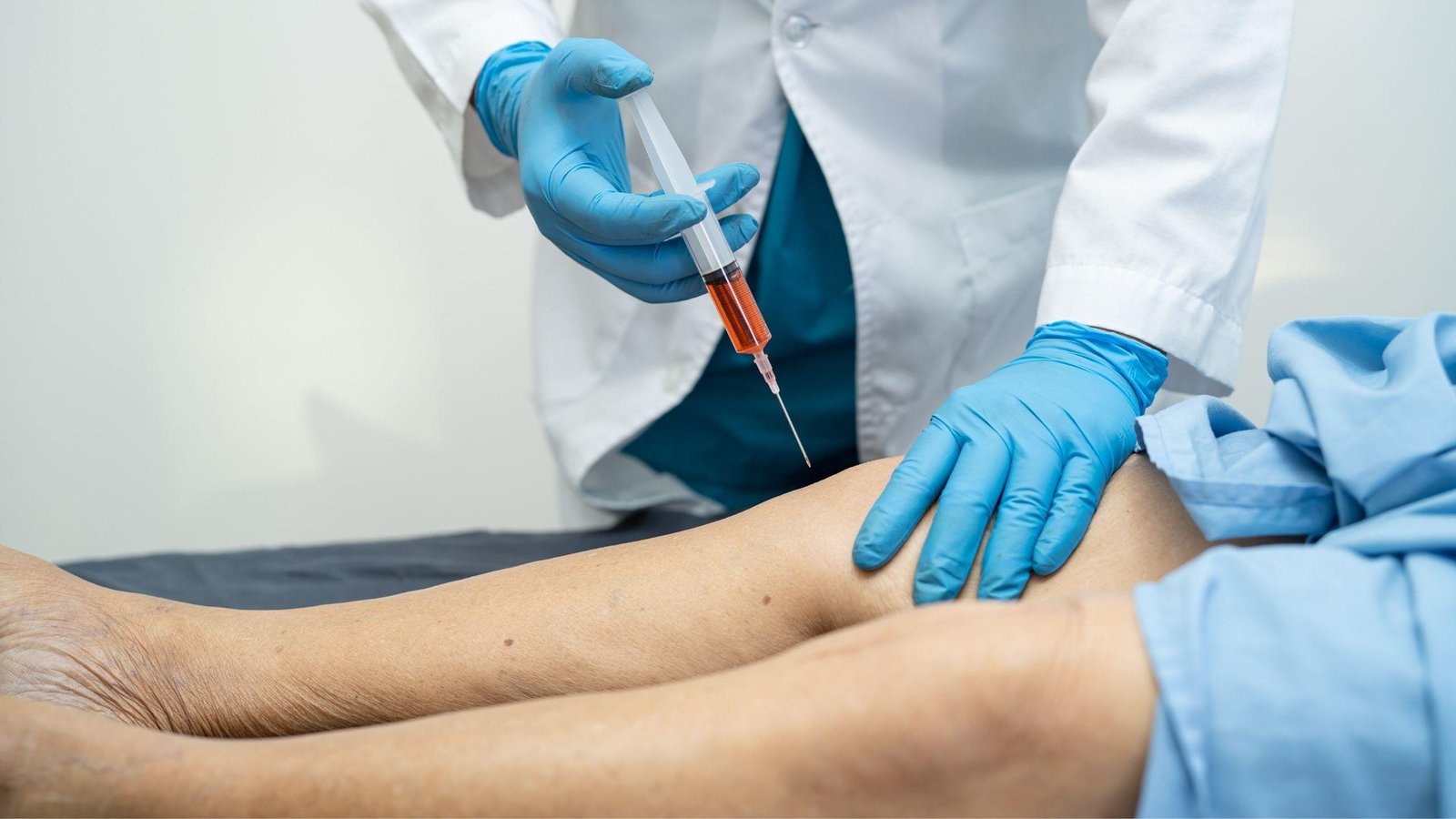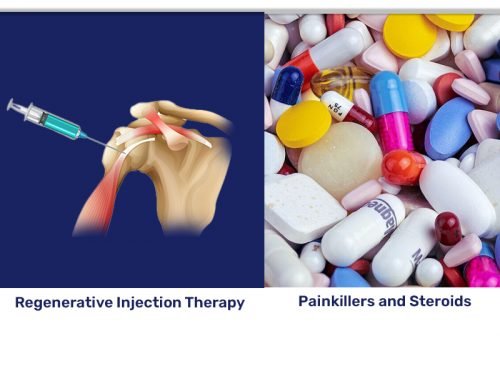After prolotherapy treatment, patients may experience some discomfort, swelling and stiffness at the injection site. These symptoms are usually mild and temporary and can be managed with over-the-counter pain medications or ice packs. Patients are typically advised to rest and avoid strenuous activity for a few days after treatment to allow the injected tissues to heal.
Let’s find out what symptoms you may face after the prolotherapy treatment:
Stiffness and Soreness
You can expect to be stiff and sore post-treatment. This could last from 2 to 7 days. If it lasts longer it is best to call back and keep us informed on how you are doing. We may need to see you back in the Clinic to review the situation rather than just covering up a pain flare with medication.
Numbness
You may notice some numbness post-treatment. This is not unusual as we have nerves all over our bodies and a solution may have irritated one. If this happens, your nerve will heal itself over time.
Bruising
Bruising is quite common; do not be alarmed by it. Bruising is good for us, as it has growth factors in it.
Pain Medication
It is normal and expected to have an aggravation of pain and perhaps swelling (sometimes a lot) and discomfort in the area post-treatment due to the inflammatory response generated by the injections that stimulate the initial healing process.
In most persons, these aggravations last for 3-5 days, but on occasion may continue for longer.
Use pain medications (Non-NSAIDS) as directed. Aspirin may be taken if it is intended to prevent stroke or heart attack. Typically, patients do not need narcotic pain medication after prolotherapy treatment except, perhaps, that evening of the treatment, or the next day. Patients commonly receive a prescription for a limited amount of post-injection pain medication.
- Apply moist heat to the treatment areas
Ice may also be used, but this tends to reduce blood flow through the tissues and may result in a slower response to the injection. We advise not accessing public water sources (lakes, hot tubs, pools) for the first 2 days. This is to avoid infection from these sources.
- Driving and working
You can drive after you receive Prolotherapy. You may feel a little stiff but will be able to continue with your activities of daily living. We do suggest walking for about five minutes before driving. You will also be capable of working. There are no work restrictions. You may choose not to work if your job involves a lot of standing or lifting.
- Exercising
Exercising is encouraged, but please do not overdo it. The stress of movement helps to produce organized, normal, strong ligaments and connective tissues. Pay attention to what your body tells you. If it hurts, take a break! Do not push yourself just because you feel better. You may pay for it later. Use heat to help calm the pain or muscle spasms. The range of motion is usually improved as the joints become more stable.
- Nutrition
It is also important to remember the diet and lifestyle choices in the overall recovery process. Nutrition deficiencies are epidemic in our modern society and this affects the overall health and healing of ligaments and tendons. Ligaments require proper vitamins, minerals, amino acids, and collagen formation for repair, and proper diet and nutrition are thus imperative for healing to occur. Similarly, a lack of proper hydration will hinder healing and cause ligaments to shrink. It is recommended that you drink at least 6-8 glasses of water per day. It is strongly advised to take supplements to help support optimal healing.
- Sleep
Lack of sleep is a significant component of chronic pain and chronic pain is a strong factor in sleep disruption. Chronic pain affects cortisol levels (a response to stress in the body affecting the adrenal glands). Where cortisol goes up the feeling of restlessness and insomnia occur. The secretion of cortisol stops when the pain cycle is stopped. Another benefit of deep restful sleep is that it produces growth hormone which is released from the pituitary gland and is anabolic (which means growth as repair).
- Hormones
Healing in prolotherapy requires inflammation and the assistance of the endocrine system which secretes and produces many hormones to help this. (eg: cortisol, thyroid, growth hormone, prostaglandins, metatarin, testosterone, etc.) Hormones decrease with age naturally. Therefore knowing the present levels is important to determine your treatment. Deficient levels may need to be treated by supplementation or support to optimize the benefit of prolotherapy treatment.
- We utilize ProLo-TOP cream to complement the Prolotherapy and SN-MERIT. You will be given a “cream application” map that will indicate areas of the body and the method of application. An application of 2-4 times a day is best for active pain and twice a day for maintenance. ProLo-TOP cream is not just a simple cream, but its unique, innovative therapeutic formulae increase the effectiveness of treatment. Call if redness or other problems occur.
Note: Occasionally aggravations may continue for a week or longer and much swelling, pain or stiffness may occur, this does not mean anything bad has occurred and should not discourage you from completing a course of treatment. Often enough, the following prolotherapy treatments can begin to calm the previous reactions. Please do not give up on following through with a treatment plan, because you are feeling worse in the short term, speak with me first. In either case, it is important to keep in mind that it still takes time for weakened areas to return to optimal function after injury. Even once regeneration has occurred, proprioceptive changes in function, muscle strengthening, and body de-compensation are still occurring.
Most post-prolotherapy patients fall into one of the following three groups. First, the pain is immediately relieved due to the injection of the numbing medicine into the area of pain. Then during the next 24 to 48 hours, their pain may return and maybe initially, be more severe. The pain will gradually decrease in intensity as healing and strengthening occur. The second group of patients has little or no pain post-injection and the pain stays relieved permanently. Another group of patients finds that their pain is relieved initially but returns after 2-3 weeks, necessitating further injections.
Dr Vikram Rajguru is one of India’s first Interventional Regenerative Orthopedic and OrthoBiologic surgeons. He is one of a handful of surgeons in the nation who is both an Orthopedic Surgeon in Pune and an expert in the field of Interventional Regenerative Orthopedics and Sports Medicine.
The Prolotherapy Clinic(PTC®) as a response to the shortcomings so evident in traditional medicine, which largely places a premium on high patient turnover while neglecting long-term health care. PTC® is India’s first center dedicated to practicing regenerative procedures like prolotherapy treatment in an Orthopedic clinical setting.




